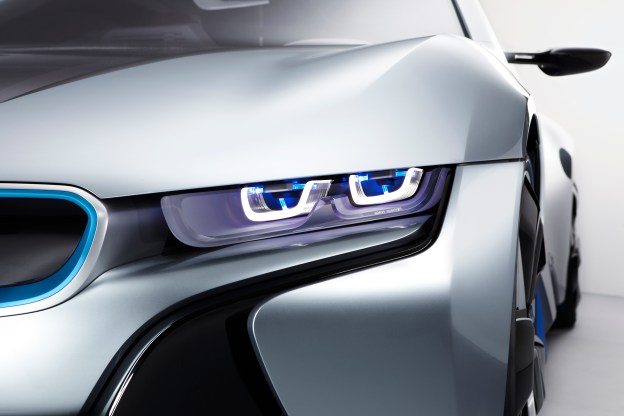
BMW has announced that it is actively testing laser headlights to replace the LED bulbs that it currently uses. The German luxury car manufacturer says that lasers are, obviously, the “next logical step” in the evolution of headlights, and reportedly have the capability to shine up to 1,000 times brighter than LEDs.
According to the press release, BMW believes laser technology could usher in “entirely new light functions for even more safety and comfort and at the same time contribute significantly through its higher degree of efficiency towards a saving in energy and fuel respectively.”
Now, if you’re one of the many drivers out there who still use conventional headlights (pre-LED), then you’re probably thinking, “Great, now I will be even more blind when one of these new laser-cars drives around a bend.” Not so, says BMW.
“The intensity of laser light poses no possible risks to humans, animals or wildlife when used in car lighting,” reads the release. “Amongst other things, this is because the light is not emitted directly, but is first converted into a form that is suitable for use in road traffic. The resulting light is very bright and white. It is also very pleasant to the eye and has a very low energy consumption.”
We hope the “very pleasant to the eye” part is more apparent than the “very bright and white” part because, if you ask us, LEDs are already too bright, and these new laser lights have the potential to be exponentially brighter. In other words, their “poses no possible risks to humans” bit sounds hard to believe.
Fortunately, BMW says the next-generation headlights are still a “few years” from going into production. The first vehicle that will sport laser beams will reportedly be the consumer version of their i8 concept car, which you can check out here.


